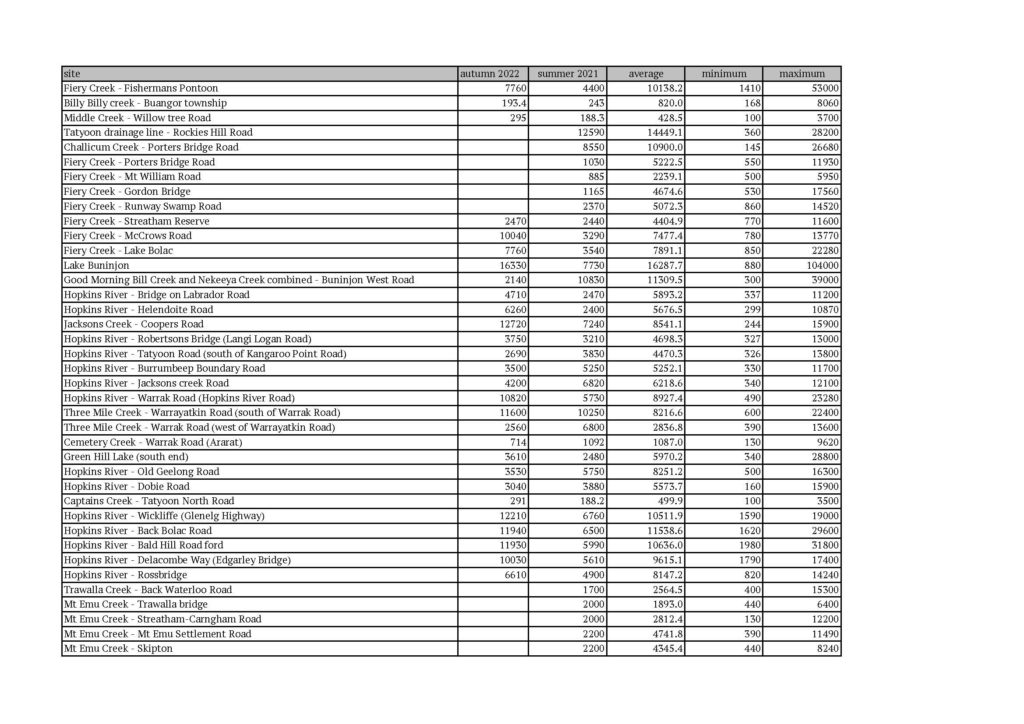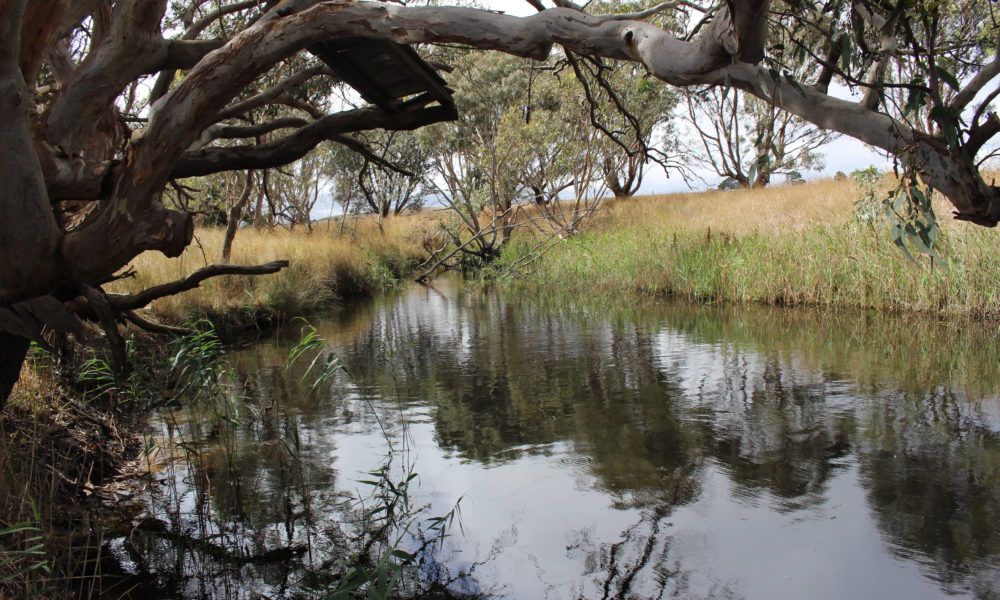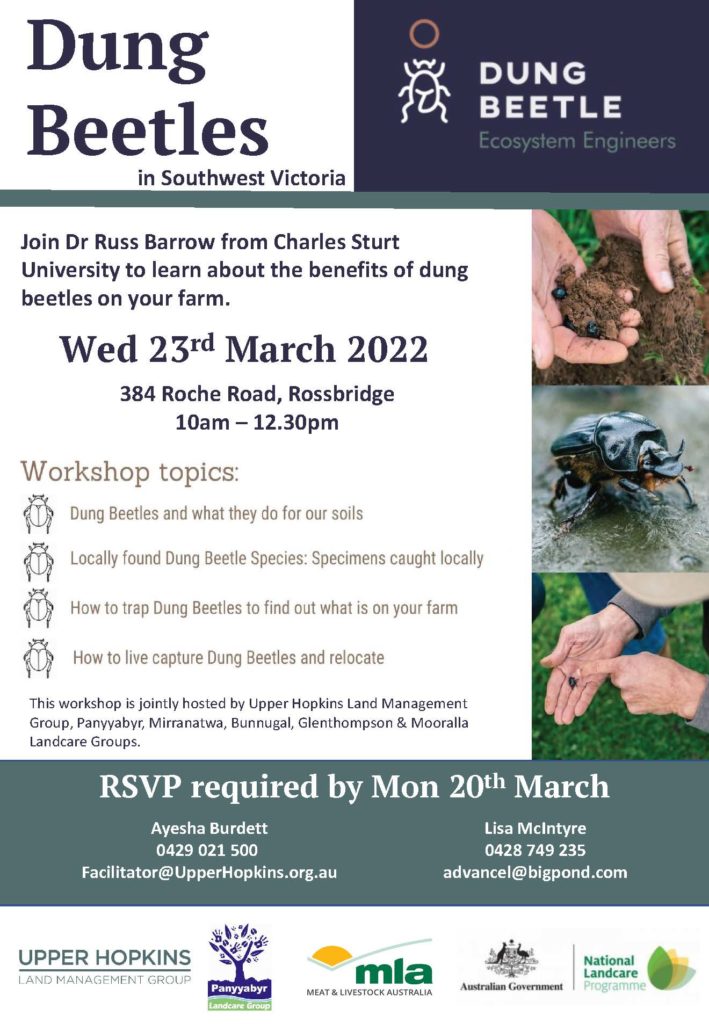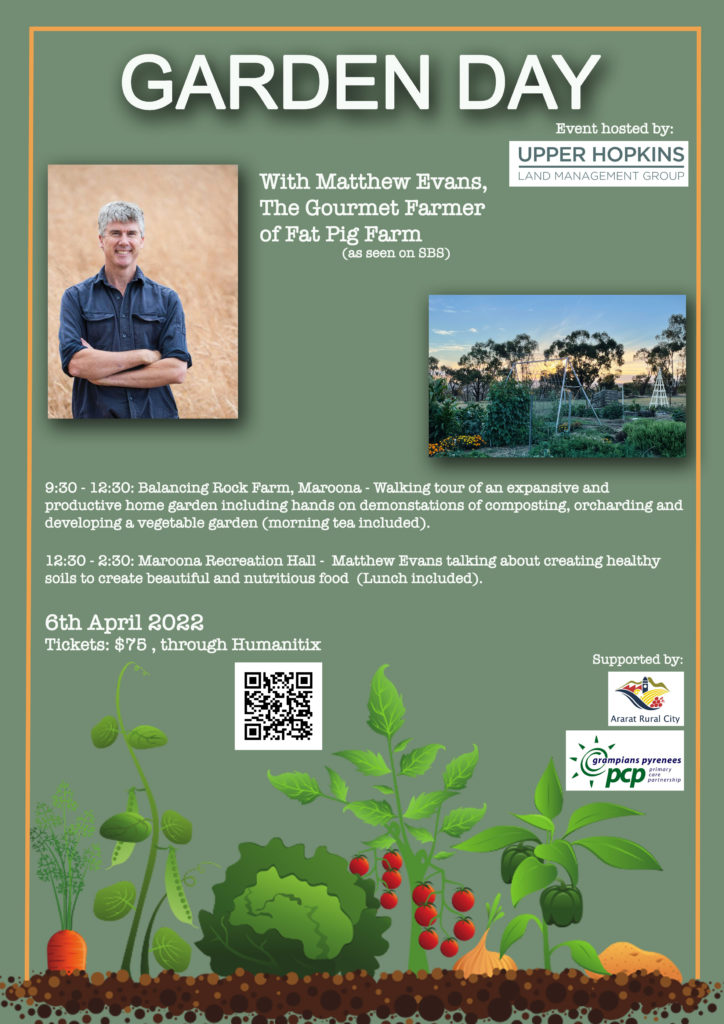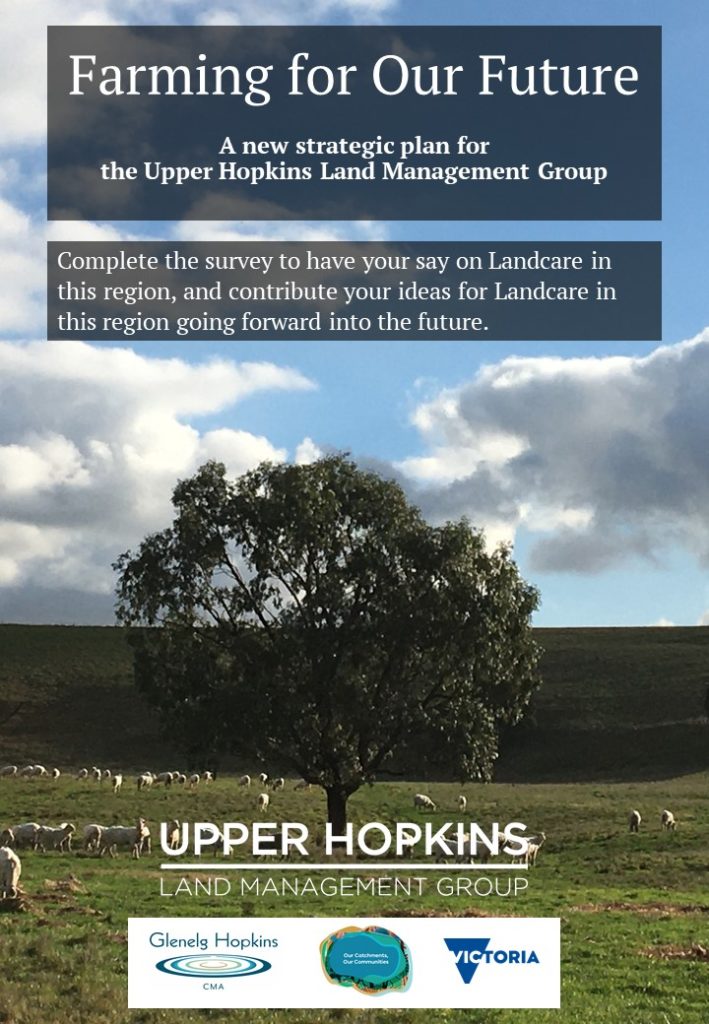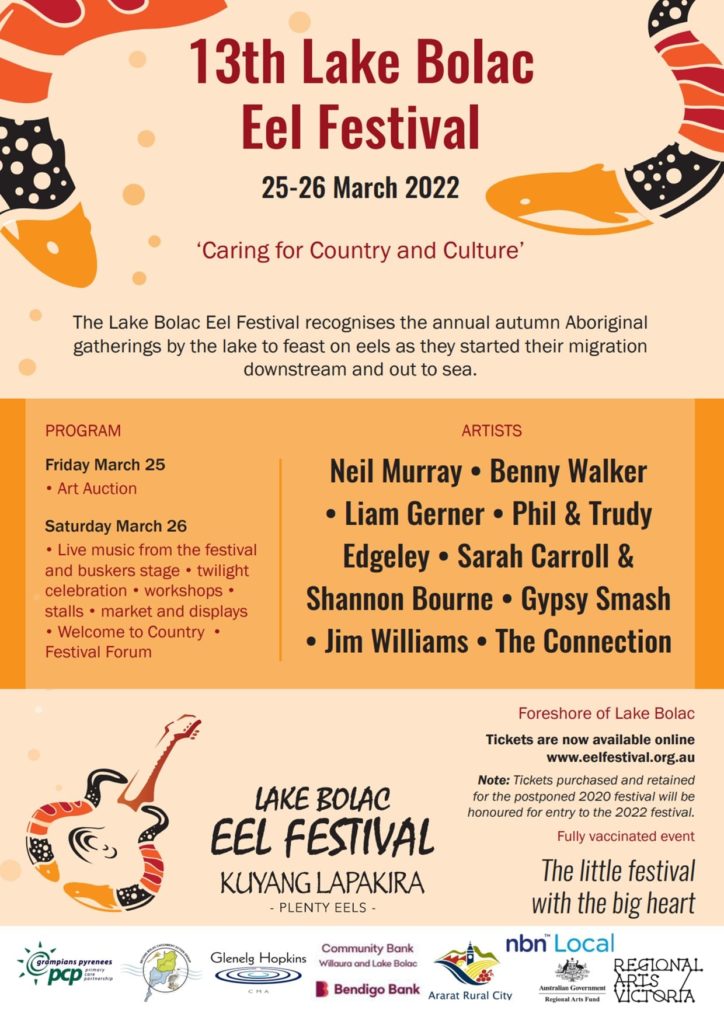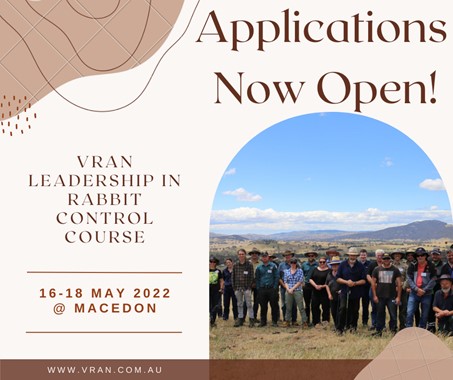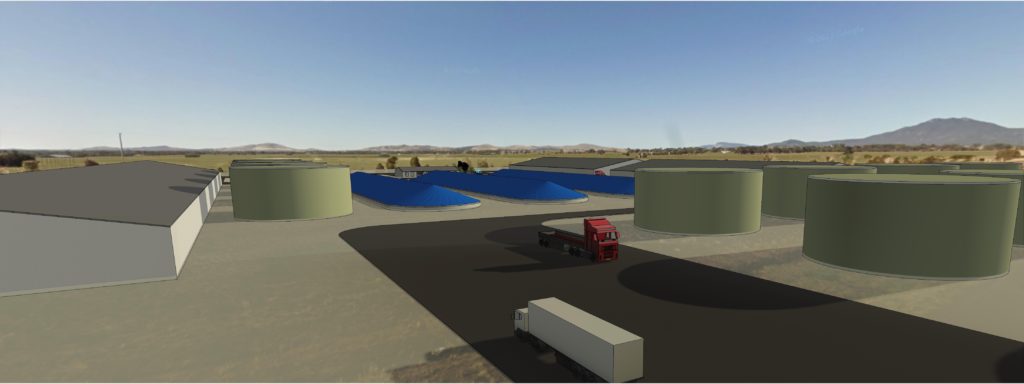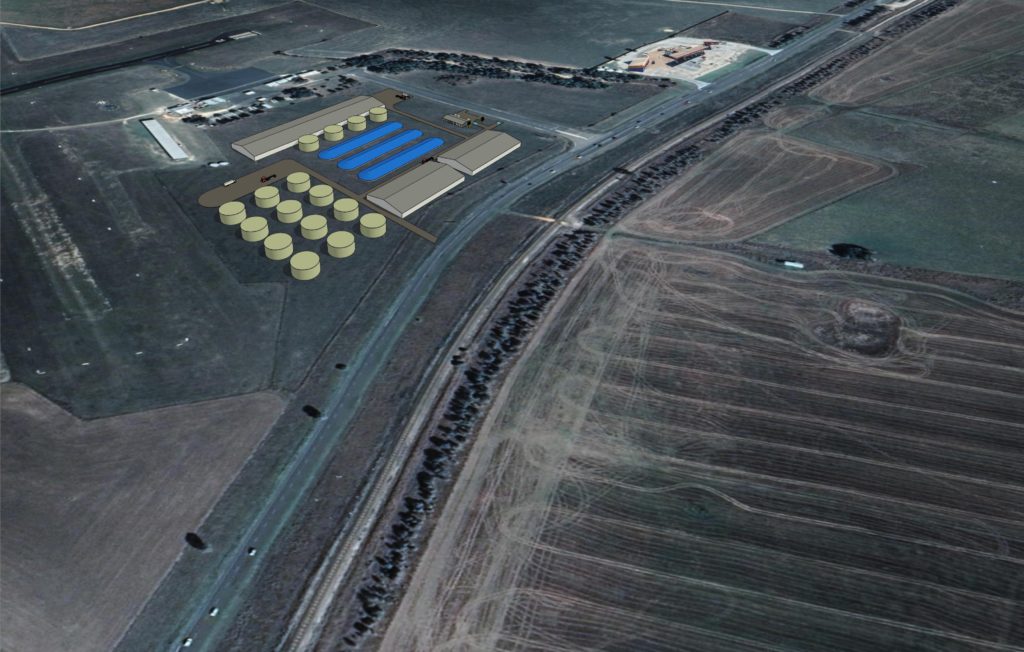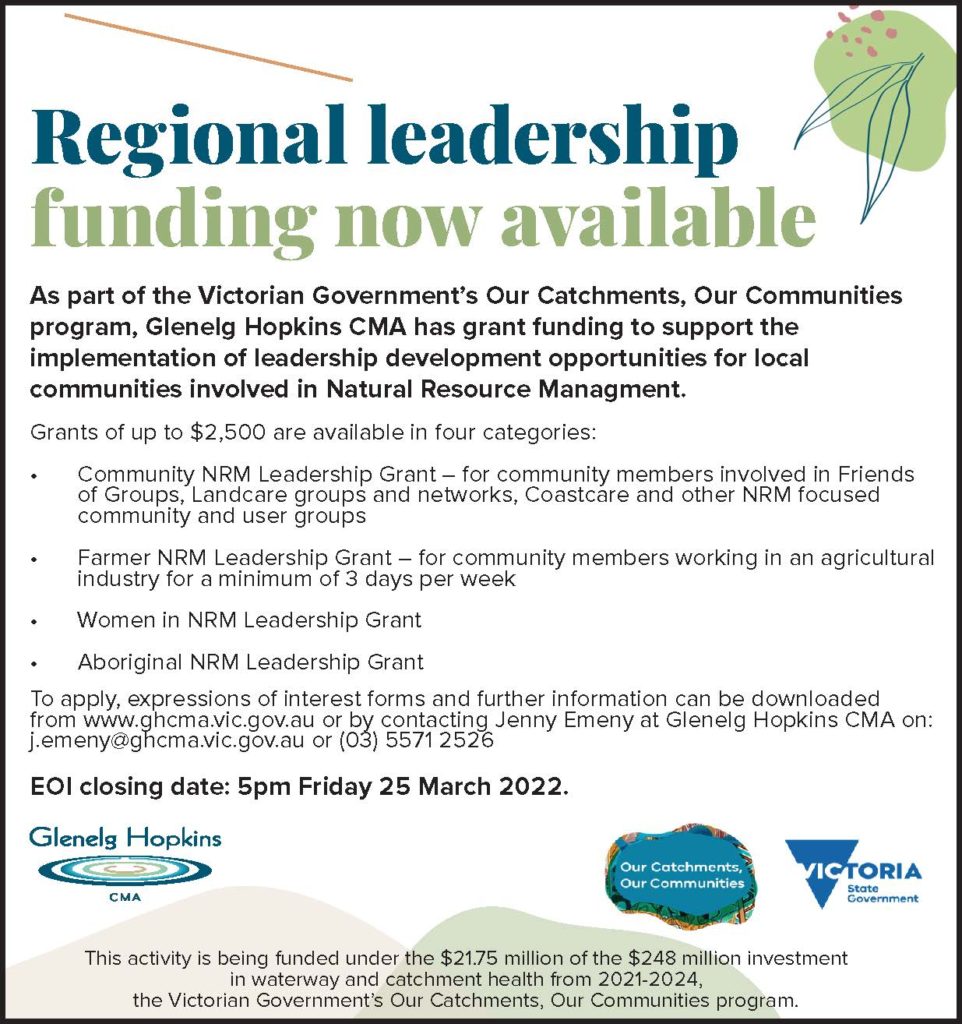Landcare news and opportunities
Opportunities and awards
- Future Proofing Your Farm with Colin Seis: Colin Seis presents a full day workshop on Grasslands & Land Management, including his cover cropping system called pasture cropping. Register online: https://www.eventbrite.com.au/e/future-proofing-your-farm-with-colin-seis-tickets-270132973997
- Landcare Australia seeking abstracts for 2022 National Landcare Conference: If you would like to share your story at the 2022 National Landcare Conference, submit your abstract electronically by 11.59 pm (AEST) on Sunday, 13 March 2022. Learn more online: https://nationallandcareconference.org.au/2022-call-for-abstracts/
- Applications for NFF’s Diversity in Agriculture Leadership Program open: To celebrate International Women’s Day, the NFF opened applications on Tuesday for its flagship Diversity in Agriculture Leadership Program aimed at increasing the representation of women in leadership positions in Australian agriculture. The Program is supported by 30 Partners who have all committed to making meaningful change towards gender equality in the leadership ranks of their organisations. Applications close 17 April.
- Learn Natural Sequence Farming at Chatsworth House: A 4-day course to get you reading your landscape, rehydrating your land and maximising productivity, by implementing Natural Sequence Farming and beginning to work alongside nature. Register online now for this workshop: https://www.tarwynparktraining.com.au/courses
Information and Resources
- Victorian Landcare Magazine: The latest issue of the Victorian Landcare Magazine includes some inspiring stories about Landcare and biodiversity! Read all about it online at https://www.landcarevic.org.au/landcare-magazine/summer-2022/.
- What’s happening in Glenelg Hopkins CMA Keep up to date with news from our local Catchment Management Authority. Go to https://www.ghcma.vic.gov.au/whats-happening/ for newsletters, podcasts and other regional updates.
- Weed control in grasslands: ARI have a new fact sheet that explains the results of weed control programs in grasslands. Linear Grassland Reserves Program Weed Control Monitoring Program – Who wins the battle for space after weed control in critically endangered grassland remnants?
- FRRR Heartbeat of Rural Australia study: this study explored how not-for-profits and community groups in remote, rural and regional Australia are faring with activities despite COVID disruptions. The most detrimental effect has been the inability to meet with one-another, while access to sufficient funding to continue to operate and expand capabilities is by far the largest constraint facing community groups. Read more about the findings of the study.
- Connecting communities to wetland country at Walker Swamp and beyond: Learn more about volunteer activities for the restoration of Walker Swamp (just north of Glenthompson). https://www.awe.gov.au/water/wetlands/publications/wetlands-australia/february-2022/connecting-communities
- A new list of Victorian grassland flora: The Grassy Plains Network has put together a new list of the flora of Victoria’s grasslands. The list contains 615 species from across the Victorian Volcanic Plain and Riverina. More information: https://grassyplains.net.au/a-new-list-of-victorian-grassland-flora/
- Past, Present and Future Climate eBook for the Victorian Mallee: This online resource from Agriculture Victoria gathers together key tools and resources on historical rainfall and temperature data, climate trends and projections. https://agriculture.vic.gov.au/climate-and-weather/resources/past,-present-and-future-climate-ebook-for-the-victorian-mallee
Webinars and podcasts
- Protecting our Sustainably Managed Farmland – lessons from the US for Victoria: Featuring an outstanding panel of leading practitioners from the US, this webinar will explore the context, processes and mechanisms that have enabled the creation and operation of community land trusts and farmland trusts, what the impacts and benefits of these institutions have been especially in terms of food justice, food security and food sovereignty; and what lessons might be applicable and transferable in the Australian context. https://events.humanitix.com/farmer-webinar
- Spectroscopic techniques to address topsoil and subsurface acidity: Soil acidity poses a serious threat to crop production in Australia and requires effective management to prevent yield losses. While treatments for soil acidity exist, they need to be applied effectively to ensure that both the surface and subsurface soils are effectively remediated. Register online: https://register.gotowebinar.com/register/6343976904664711180
- The Sound of Water – why should we be listening in to wetlands? Have a listen to hear the amazing Southern Bell frogs and other native animals responding to water flowing through their habitat at Nap Nap Swamp: https://flow-mer.org.au/napnap/
- SWIFFT Seminar: Nature at home and in my landscape: This will be an opportunity to learn how we can observe and connect with nature which is all around us, at home, in the suburbs, forests and farmlands. https://www.swifft.net.au/cb_pages/new_agenda_items.php
- Celebrating Women in Conservation Breakfast 2022: Victoria McKenzie-McHarg and Linh Do celebrated the powerfully important role that women play in the conservation sector. Watch the recording here: https://www.bushheritage.org.au/women-in-conservation-breakfast

From the President’s Desk

Jack Tucker, President
Hello and welcome to the Autumn edition of our newsletter,
In Landcare terms just like farming, Autumn is really the beginning of the year.
Now is an excellent time to be preparing for this seasons revegetation work.
Early weed control and ripping greatly improve the chances of success through reducing plant competition, retaining water in the soil and providing optimum soil conditions for planting via rip lines having time to settle and consolidate before planting.
It is also a good time to double check plant requirements and make sure orders have been placed with your preferred grower. In recent times demand for tubestock has been off the charts, and many local nurseries have sold out of popular species early in the season. With this in mind it’s a great idea to get any plant orders in ASAP.
While on the topic of preparation for trees, looking around the district it appears the canker affecting introduced cypress trees is really taking hold. This will inevitably lead in the near future to large areas which have been long protected by Cypress plantations becoming fully exposed to the elements. There is real opportunity to buffer this by establishing native windbreaks in these areas before the Cypress are removed. Direct seeding is a great option where a fast growing, dense windbreak is required.
As a final note we have been fortunate enough to engage Sophie Bickford from Central Victorian Biolinks to assist us with developing a new Strategic Plan, so could I please encourage anyone who has an interest in the future of Landcare in our region to provide input or ideas when opportunities arise over the coming months.
Happy Landcaring,
Jack
Dung Beetles in Southwest Victoria
Upper Hopkins Land Management Group, in collaboration with the South Grampians Environment and Landcare network, will be hosting a special workshop with Dr Russ Barrow from Charles Sturt University.
Russ is a researcher with the ‘Dung Beetles Ecosystems Engineers (DBEE)’ project, monitoring the distribution, abundance and diversity of dung beetles across various climatic zones.
He conducts monthly monitoring on over 100 intensive surveillance sites over one to two years to definitively establish where various beetle species have adapted regionally and become successfully established.
Russ will talk about the benefits of beetles, which beetles are found in our area, beetle ID, the DBEE project, and how to live capture and relocate beetles.
Everyone is encouraged to bring along beetle specimens from your farm for his help with identification.
Please RSVP to help with catering and COVID management. Contact Ayesha at facilitator@UpperHopkins.org.au or 0429 021 500.
Garden Day with the Gourmet Farmer, Matthew Evans
The Soil Health Team has been busy planning a series of workshops and events for members and friends of Upper Hopkins Land Management Group.
Our first event is a Garden Day to learn about gardening and soil health. Everyone is encouraged to get together to learn and share their experiences.
The day will begin with a walking tour of Balancing Rock Farm, an expansive and well-managed home garden. There will be hands-on demonstrations of composting, orcharding, worm-farming and developing a vegetable garden.
After lunch, Matthew Evans (the Gourmet Farmer from Fat Pig Farm) will discuss his personal experiences with creating a garden and his growing realization of the importance of taking care of the soil to improve our food, our health and our planet. He is the author of twelve books and a star of the long-running SBS TV series, The Gourmet Farmer.
Farming for Our Future
It is time to update our strategic plan! The previous strategic plan was created in 2016 and has guided the development of many projects by the Group. Some things have changed in the past five years (and some have stayed the same), so it’s important that we review the old plan and refine new priorities for the group.
Many members are probably blissfully ignorant of the current strategic plan, but it’s an important document for us. Strategic plans are important when planning our workshops and events and when requesting funding, and help us to focus on what’s important for our members and partners.
We would like to hear from everyone about their views on Landcare in the region. The first step is to gather information through a short, 5-minute survey to learn about the key issues for farming sustainably and caring for the environment. This survey is open to everyone.
The next step will be to get together in May to discuss the outcomes from the survey and create a plan for the future.
Watch out for news and updates about our strategic plan in your inbox or on our Facebook page (https://www.facebook.com/UHLMG).
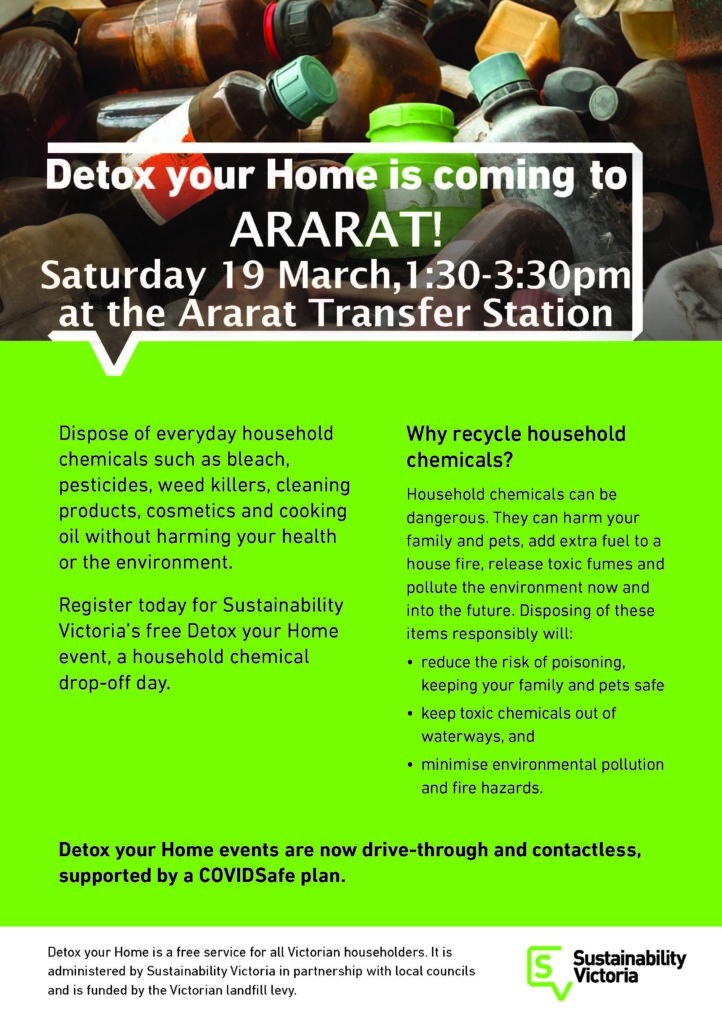
All the dirt – soil news
Dig Deep for Soils
Australian soil health forms the foundation of our biodiversity. Catch up on the December 2021 webinar hosted on Landcarer, with the winner and finalists of the inaugural General Jeffery Soil Heath Award.
Do you know someone who should be recognised for their work? You can nominate now for the 2022 General Jeffery Soil Health Award.
Soil Science Australia will be the National Soil Science Body
Soil Science Australia has been awarded $2 million under the continuing Australian Government investment in the ‘National Landcare: Smart Farms Small Grants: Soil Extension Activities’ program to support farmers and landholders adopt smart farming techniques.
Soil Science Australia will be the National Soil Science Body and will work collaboratively with farmers and landholders to increase their soil knowledge to improve the protection, resilience, and productivity of our soils. The National Soil Strategy is Australia’s first national policy on soil. It sets out how Australia will value, manage and improve its soils for the next 20 years.
Updates from Southern Farming Systems
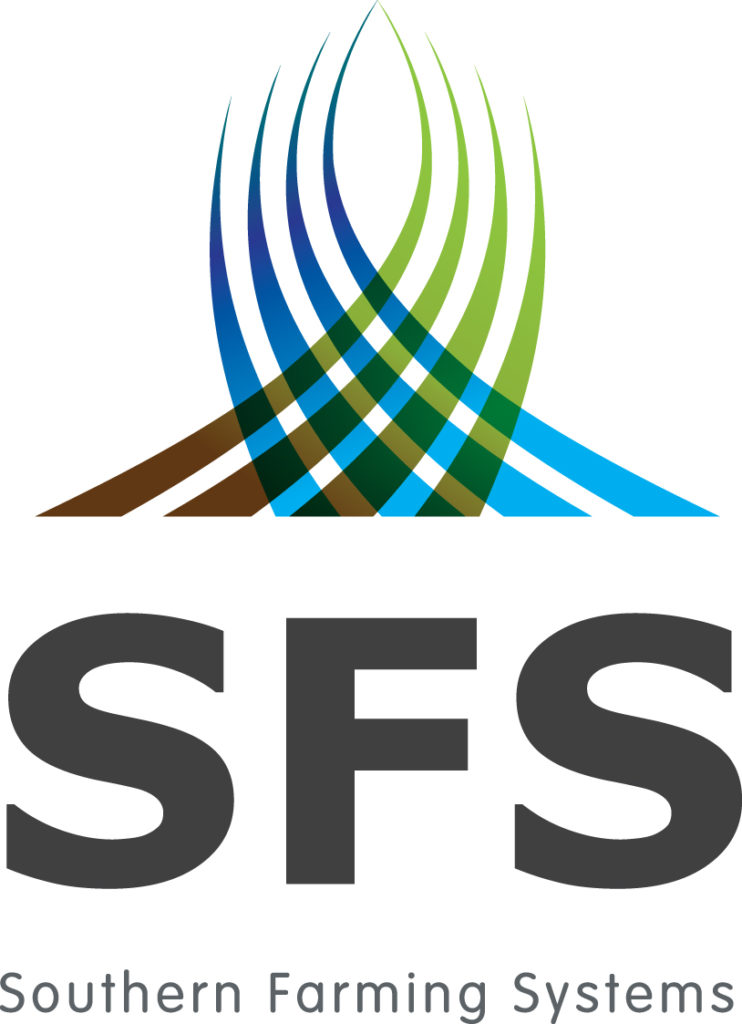
Harvest was completed before the end of January and yields around SW VIC have been great and a reflection on what a wonderful growing season 2021 was. Some of the crop trials may even be record breaking! Preparations for the 2022 cropping season are underway with liming of paddocks and summer weed control resumes in place.
The SFS team are busy writing up the trial result reports and analysing the interactions of all the factors that produce a certain outcome ready for the Annual Trials Results Book and Results Morning being held at the Willaura Hall on the 22nd March. For more information on this event go to https://sfs.org.au/communications/events
Southern Farming Systems has been working on many resources and tools for Meat & Livestock Australia around Less Weed, Better Pasture, More Sub Clover and Persistent and Productive Pastures check them out on our website https://sfs.org.au/pasture-livestock/projects
The less weeds, better pasture project has a great factsheet booklet called Weed Fast Facts: Information on common pasture weeds to support management decisions check it out here https://sfs.org.au/wp-content/uploads/files/0272_SFS_MLA-Weed-Fast-Facts_Jan-2022_Active-Links_LR.pdf
To keep up to date, checkout our great resources we are working on or sign up to Southern Farming Systems go to www.sfs.org.au
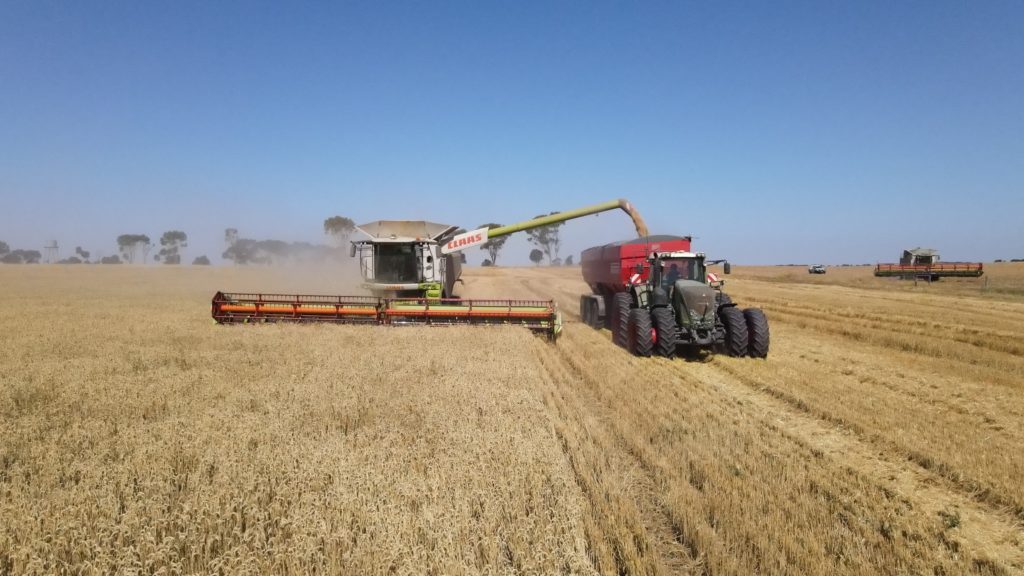
default 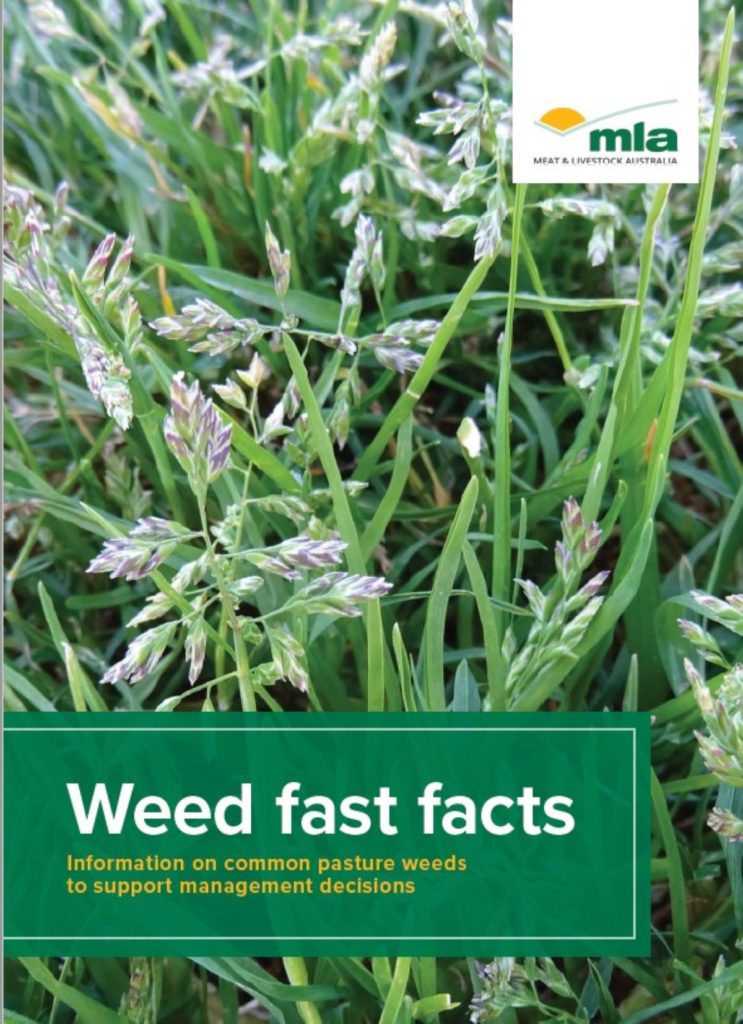
Rabbit news
Rabbit R&D webinar
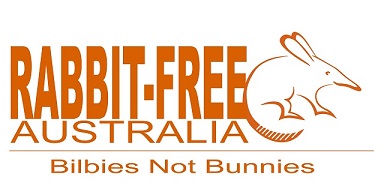
The Centre for Invasive Species Solutions (CISS) and Foundation for Rabbit Free Australia are hosting an online Rabbit R&D Update on Monday, March 21, 2022.
This free webinar, hosted by the Centre for Invasive Species Solutions in partnership with Rabbit Free Australia, brings together Australia’s leading experts to share their insights on best practice rabbit biocontrol, its benefits and raising awareness of rabbit issues.
- Andreas Glanznig (CEO, Centre for Invasive Species Solutions) will open the online seminar.
- David Peacock (Peacock Bio-Science) and Graeme Finlayson (Bush Heritage Australia) will speak on the environmental benefits from rabbit biocontrol.
- Talia Hardaker (ACRE Economics and formerly with AgTrans Research and Consulting) will speak on the production and economic benefits of rabbit control.
- Pat Taggart (NSW Department of Primary Industries) and Tanja Strive (CSIRO) will speak on RHDV in the field and best practice management for RHDV-K5.
- Richard Price (Portfolio Director, Research, Centre for Invasive Species Solutions) will lead a Q&A session and close the online seminar.
Anyone interested in raising awareness, seeking support or investment for rabbit control programs, planning or managing control programs at any scale, or advising landholders, will find something of value in the forum.
To register for this FREE webinar please visit:https://www.rabbitfreeaustralia.org.au/events/
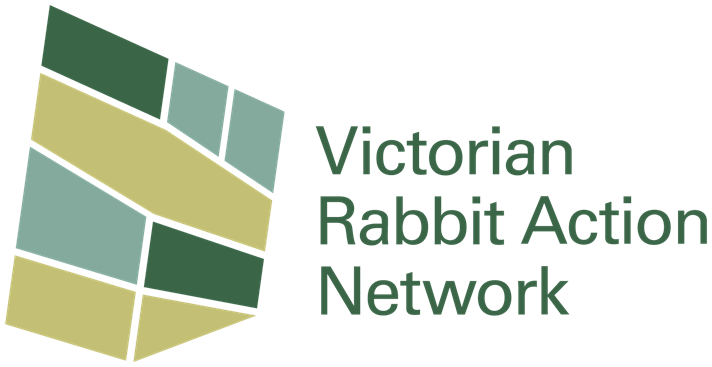
Applications for the Leadership in Rabbit Control Course are now open!
If you’re involved in the management of rabbits on private or public land in Victoria you do not want to miss this informative and interactive course!
Join the award-winning team from VRAN along with a host of community, industry and government experts as we empower you to take coordinated, community led action for more sustainable and effective rabbit management results.
Taking place on 16-18 May in Macedon, this free program is delivered over two and half days, with a mix of classroom and practical field-based training to boost your technical skills and best practice knowledge.
There are only 20 spots available in the course and applications close 25 March 2022.
So, you better hop to it!
For more information or to apply, please visit www.vran.com.au or contact Heidi Kleinert, VRAN Course Coordinator at heidi.kleinert@agriculture.vic.gov.au or 0472 877 472.
Injury risk and safety behaviours of children on Victorian farms
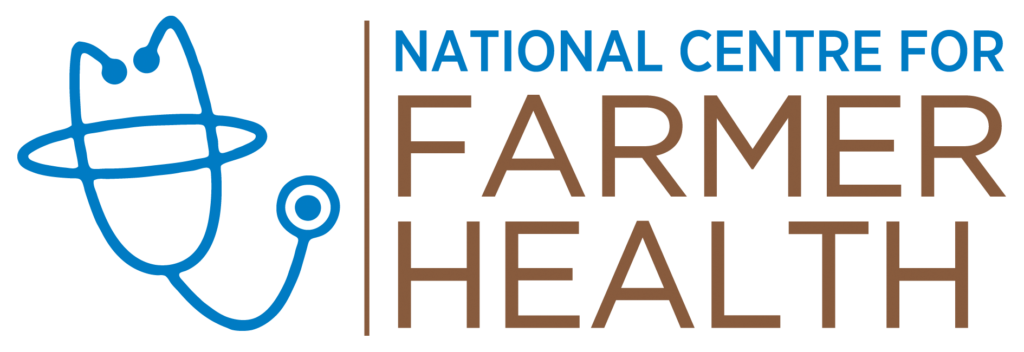
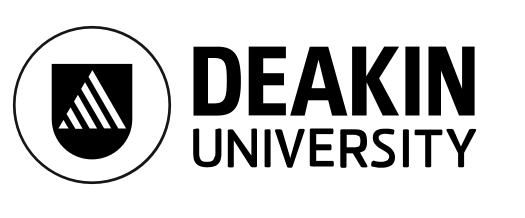
The rates of child farm-related injury in rural Australia have remained constant over the last 20 years, despite ongoing efforts to reduce them. This is concerning, as injuries are largely preventable. Deakin research student, Jessie Adams, is conducting a study to investigate how the common behaviours, attitudes and lifestyles on Victorian farms are contributing to these injury rates. “There is a romantic view that farms are healthy places for children to grow and develop, and they can be. However, they are also a work environment consisting of many hazards and dangers not typically present at most homes,” Ms Adams stated.
“We know being involved in the family farm is part of growing up on the farm” Ms Adams explained, ‘but Australian research is yet to understand children’s exposure to occupational hazards, their risk-taking behaviours or to what extent common safety measures are being used on farms. This study will give us important insight into the context of children’s experiences on Victorian farms and help develop targeted ways to prevent fatal and non-fatal child injuries.”
The study is seeking the involvement of rural Victorian children aged 5 to 14 years, who live on a farm or visit a farm regularly (at least twice in the last year), as well as their parents. Participating will involve the completion of an online survey. Parents will be asked to fill out the first section of the survey, children will then be asked to complete the second section. The contributions of parents’ and children will be invaluable in assisting to reduce child farm-related injuries.

To find out more information and access the survey please visit: Injury risk and safety behaviours of children on Victorian farms
- Access the survey link directly
- Or use the QR code below
For further queries, please contact:
Jessie Adams
PhD Candidate, Deakin University, National Centre for Farmer Health T: 04 4810 4698 / (03) 5551 8533 E: jessie.adams@wdhs.net
Ethics reference: DUHREC: 2020-355
Updates from Perennial Pasture Systems

Perennial Pasture Systems and the Girls & Grass Advisory Group have completed their planning of events for 2022. They have an ambitious year of events ahead. Girls & Grass AG is supported by Rural Bank.
February has started the year well with Girls & Grass hosting the first in a series of Farm Business Workshops. This workshop had been originally scheduled for August last year, but COVID restrictions meant that a change of date was necessary. Session 1. was undertaken on the 6th of February at Alexandra Community Centre in Ararat. Stacey Shelden, Principal with Coggergurry Chartered Accountants, Hamilton and Emma Bolding, Farm Business Management Consultant with Meridian Agriculture were the presenters.



This session concentrated on “Bookkeeping”. This session was planned as an introduction to the issues involved in managing an efficient and effective farm office. Close to twenty PPS members took the opportunity to participate.
Farm Business Topics covered included: –
- The importance of Record Keeping for management and compliance.
- The Farm Office, dedicated space, time, and the importance of being organized.
- Farm Records how are they kept paper or electronic and production records.
- Financial Records paper or electronic, accounting software, BAS, EOFY, Payroll and Superannuation.
- Setting Up Your Financial System cash or accrual, chart of accounts.
The feedback from the session was very positive and everyone went home with at least one tip to help their business. Hosting the event as a half day on Sunday was well received and will continue Session two scheduled for some time in April. The focus this time will be on the Farm Business Structure and the impact it has on Succession Planning and Wills. The Farm Business Workshops have been supported by Glenelg Hopkins Catchment Management Authority through the National Landcare Program.
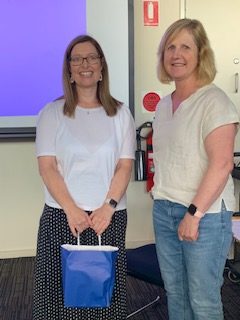
Business workshop speaker Stacey Shelden and G&G Chair Sue Maconachie (photo supplied) 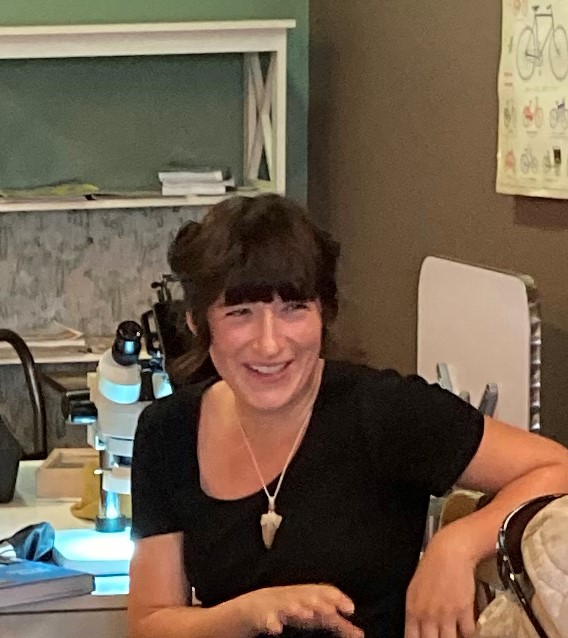
Elia Pirtle (photo supplied) 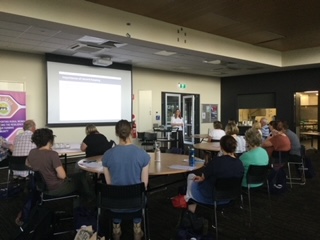
Seeder workshop at Joel Joel (photo supplied)
Wednesday 23rd February saw the first of the ‘Coffee and Conversation’ get togethers. This time at the Mokepilly Café in Stawell. PPS member, Elia Pirtle gave a very informative and engaging talk on her work as a Researcher and Entomologist.
March 3rd PPS hosted a seeder workshop at Joel with a panel of experienced members leading the discussion on aspects of machinery set up and sowing techniques.

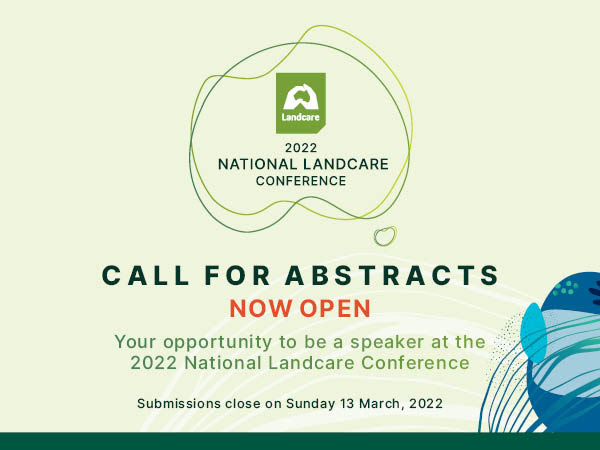
National Landcare Conference
The educational resources for the National Landcare Conference 2021 on Landcarer are some of the most valued and engaged with content on the platform. There is another conference in 2022, which will create another incredible collection of resources for people on Landcarer.
If you would like to take part by giving a presentation at the National Landcare Conference 2022 (even from the comfort of your home or office) you can submit an abstract now. Giving a speech at the National Landcare Conference 2022 will give your local story a national audience, and help share your knowledge with volunteers all across Australia.
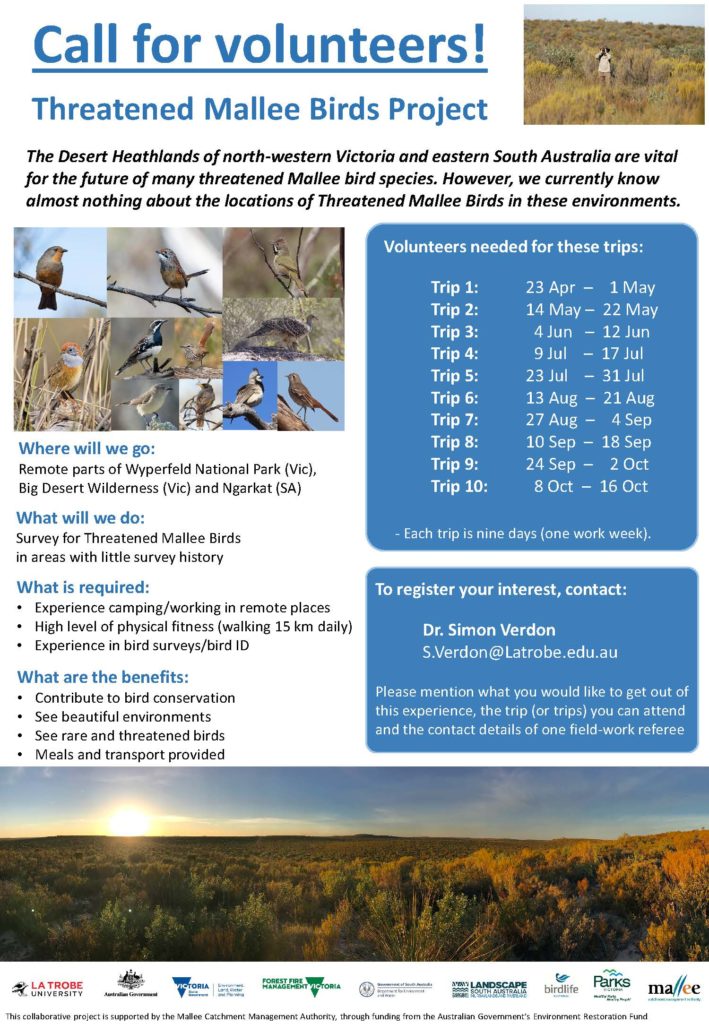

Farmers encouraged to sign up for assessment of their farm’s natural values
The NFF is launching a program to give farmers the power to value a farm’s natural resources or natural capital to show its productivity and profit. The NFF is partnering with Farming for the Future, who will work closely with farmers, ag advisors and accountants to develop the farm-friendly tool. Farmers can find out more and register their interest.
Grampians Gas: Project Update

Scott Grierson, Managing Director
Many folks may be interested to get a general update on ‘goings on’ in relation to the proposed ‘Grampians Gas’ project, since we’ve been a bit quiet during the summer period?
Front End Loading – Stage 2 (FEL 2)
Study:
The next phase (FEL 2) of engineering studies is already underway, with our consulting partner having developed with us an EOI document that has been distributed to a number of international technology vendors in the anaerobic digestion and torrefaction/carbonisation space. Turnaround time on detailed responses is up in early March, after which we can review the submissions and make a ‘preferred vendor’ selection.
The ultimate outcome of this initial Phase of activity is to work towards a ‘Basis of Design’ that we can take forward -concepts and talk are all great, but you need to have tech vendors and construction partners who are actually able to deliver on their promise and have the experience, reference projects and financial backing to bring their solution all the way to us in Western Vic! Hence, part of this process is not just getting info from them regarding their technology, but it also represents a preliminary commercial ‘due diligence’ process to understand their financial capacity, shareholder base and governance approach etc. As you can imagine, this of course becomes important later on when it’s time to present the whole shabang to investors with a view to raising project finance.
Supply Chain Logistics Modelling
We have accepted a final proposal from a mathematical and financial modelling consultant with whom we have a pre-existing relationship to assist with mapping out all of the multiple variables in the proposed straw supply chain. Based on your original feedstock EOIs, this process will be informed with geospatial data to arrive at an optimal set up for handling, haulage, short and long term storage options and locations, pre-processing (if required), centralised vs distributed processing options, etc. It’s a complex exercise but one which will be fundamental to our success!
We are now finalising a date/time to be in town over the coming fortnight to conduct an in-depth workshop with representatives from our Project Reference Group in order to tease out the variables that are relevant to constructing this mathematical model. The outputs of this simulation process will tell us much about how we need to set the whole supply chain up to be the most streamlined and efficient it can be. This will influence the ongoing engineering and design work, as well as impact on commercial negotiations with various project participants (including you as straw suppliers!). We’ll be back to you with more about the outcome of this once we have some more relevant insights to share!
Emerging Offtake Opportunities
We’re having some useful conversations with a number of potential offtakers in relation to both biomethane and also biochar. This list includes major commodity traders, investment banks, utilities, industrials and petrochemical players, all of whom are keen to advance contract discussions for the products and also the carbon certificates that go with them. Notwithstanding, there is clearly interest in ‘added-value’ options such as urea manufacture as well, in the wake of the AdBlue scare that point to the possibility of local, renewable fertiliser manufacture also that are being explored. BioCNG, ethanol and methanol are likewise in the mix for consideration but would likely come later in any event.
Sampling
We will be on the ground over the coming fortnight or so collecting feedstock samples, so we can get some specific analytical data relating to different feedstock types. This will need to canvas the whole spread of straw or ag waste derived from major varieties and species (including wheat, barley, canola, oaten hay etc) under cultivation in the district to ensure we get a good representative ‘library’ of data. Through this process we will be able to identify whether or not the biochemistry of various sources of supply represent material differences in composition that could negatively influence the technology and/or end product. This will of course also give us a sense of if/what we will be able to contract for, or indeed if there are any exclusions or limitations that may have to apply (there may be none!).
Contracting
We have ‘been around the block’ several times on this, but we’ve finally settled on a feedstock contracting process that we think will give us the comfort we need to take the project forward, while getting to fair terms and a workable price formula with all interested suppliers. In essence, as a first step our proposed approach will involve formally ‘agreeing to negotiate with each other on an exclusive basis’ for a defined period (notably, on a ‘first come, first serve basis’, according to a minimum proposed annual volume).
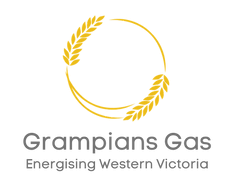
During this negotiation we will work together to establish prices and incentives etc that are mutually acceptable for all parties, thereby arriving at an executable Feedstock Agreement. Assuming we get to acceptable terms within this negotiation period and thereafter, once the project achieves ‘Financial Close’ (i.e. has successfully raised the cash to build the asset), we would then have a binding contractual commitment for feedstock in place. The construction/commissioning period will likely take some 18 – 24 months, at which point feedstock supply would commence in earnest based on the agreed terms.
Ongoing Consultation
As ever, this project is as much about the Grampians community as it is about me or anyone else at PHP or its partners! Please always feel free to reach out to chat, share ideas, raise questions, flag concerns etc at any time!
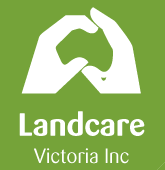
Landcare Victoria Inc. – Board nominations now open
The Landcare Victoria Inc. Board is responsible for overseeing and steering the organisation by setting strategic direction and providing governance. We are seeking nominations for Board members for the following voting regions (one position in each region):
- Corangamite
- East Gippsland
- Goulburn Broken
- Mallee
- Port Phillip & Westernport
- West Gippsland
- Professional Landcarer (all regions)
How to nominate
To view who is eligible to nominate for each role, nomination forms and current list of Voting Delegates, please visit the Victorian Landcare Gateway.
Beyond Bolac Catchment Action Group – News Update
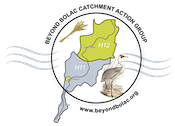
Fiery Creek, Lake Bolac, Salt Creek Catchment
Sustainable Soils Workshop – Soil structure & analysis by differing land use
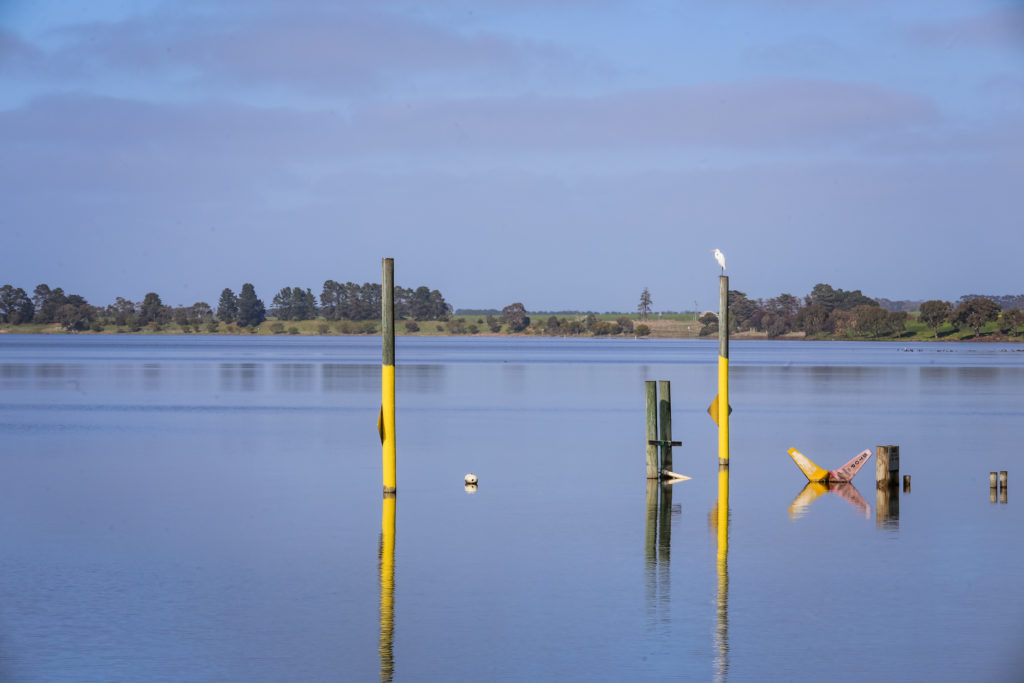
BBCAG will host a Sustainable Soils workshop in late April which will analyse 3 soil pits, looking at a cropping paddock, pasture paddock & a wetland, to gain an insight on the soil’s physical & chemical properties & how these relate to farming practice and landscape condition. This event is funded by the GHCMA and will be held at Ballycarrick in Tatyoon from 9:30am to 1:30pm. Keep an eye on BBCAG’s Facebook page and website, www.beyondbolac.org for further details and to register.
Photo Monitoring at Lake Bolac
BBCAG secured funding through the Dundonnell Wind Farm to install photo monitoring points at Lake Bolac. These points will be set up so any visitor can use a camera or smart phone to take a photo of the same view and then upload to an online database where the images can be analysed by BBCAG over time to monitor changes to the Lake. BBCAG will be liaising with Parks Victoria and the Lake Bolac Foreshore Committee to determine appropriate sites over the coming months and hope to have the photos points installed by mid-year.
Strategic Plan Review
BBCAG will this year embark on a project to review and update their Strategic Plan. The plan will outline the group’s long-term vision, its aim as well as its priorities and goals for the next 5 years. The current Strategic Plan is available at www.beyondbolac.org. BBCAG will be consulting with stakeholders and the community to gain a better understanding of what the issues and the challenges are facing the catchment. If you would like to be involved in the process, please contact Jileena, otherwise, keep an eye on the BBCAG Facebook page and Website for updates on the projects and opportunities to have your say.
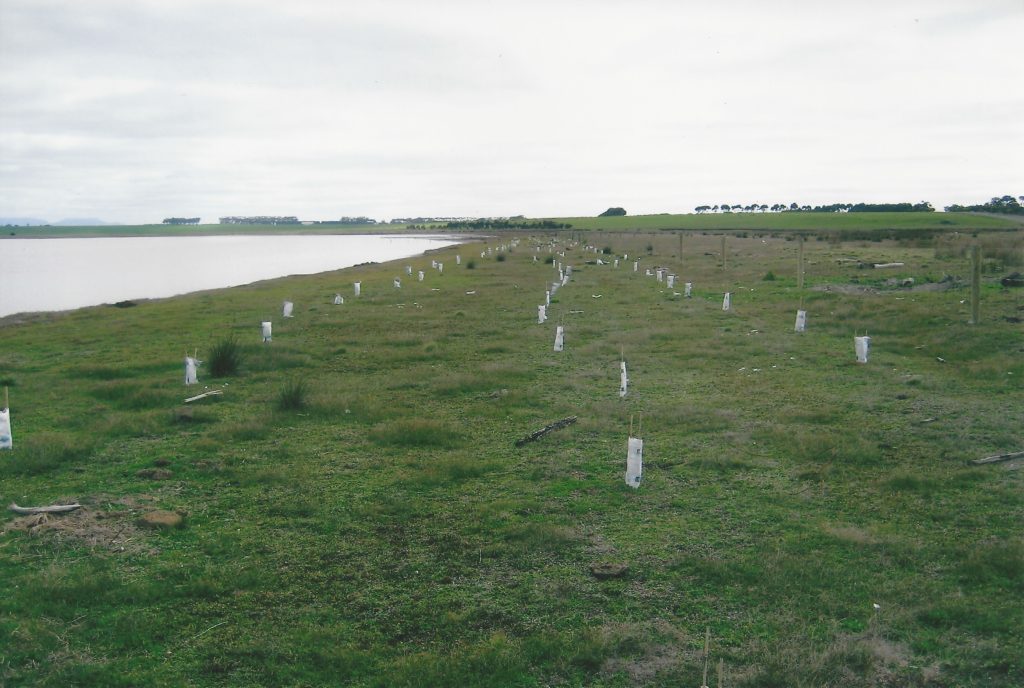
Victorian Landcare Grants
Last year, BBCAG secured $54,358 in funding under the Victorian Landcare Grants to support landholders within the catchment undertake revegetation projects along waterways, around wetlands and for wildlife corridors.
Tim Hill (Chair)
0428 853 775
Jileena Cole (Landcare Facilitator)
0428 341 869
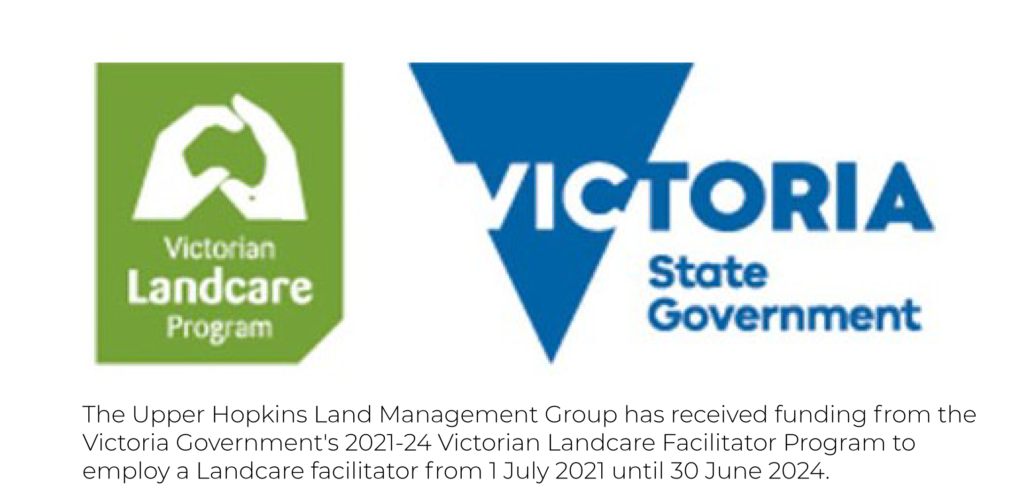

Meanderings and reflections
Over the past few years, I have had several conversations with people about the quality of water in our rivers, creeks and lakes. Many people are concerned that there is too much algae growing, water flow has declined or that cumbungi (Phragmites) is taking over the river. Some people reminisce about the days that we could go fishing or swimming in the river, and worry about maintaining healthy habitat for platypus.
There are lots of reasons why we see changes in the river. It could be that climate change is reducing rainfall, the way wastewater is managed has changed, or more nutrients are running off cropped land. The way we manage our wetlands and drains has changed, and thousands of trees have been planted by Landcarers and farmers since I was a kid. All of these different effects add up and work together in our catchment, which means that there is no quick fix to bringing back the river to the way it used to be.
Another problem that we have in river restoration is the lack of information about how the river used to be. There is some historical data to compare with the EC data that we collect (go to: http://www.bom.gov.au/waterdata/ and type “Hopkins” in the search box), but there is very little biological data (e.g. surveys of fish or waterbugs) and I have had no luck finding nutrient data. This is an interesting challenge for us!
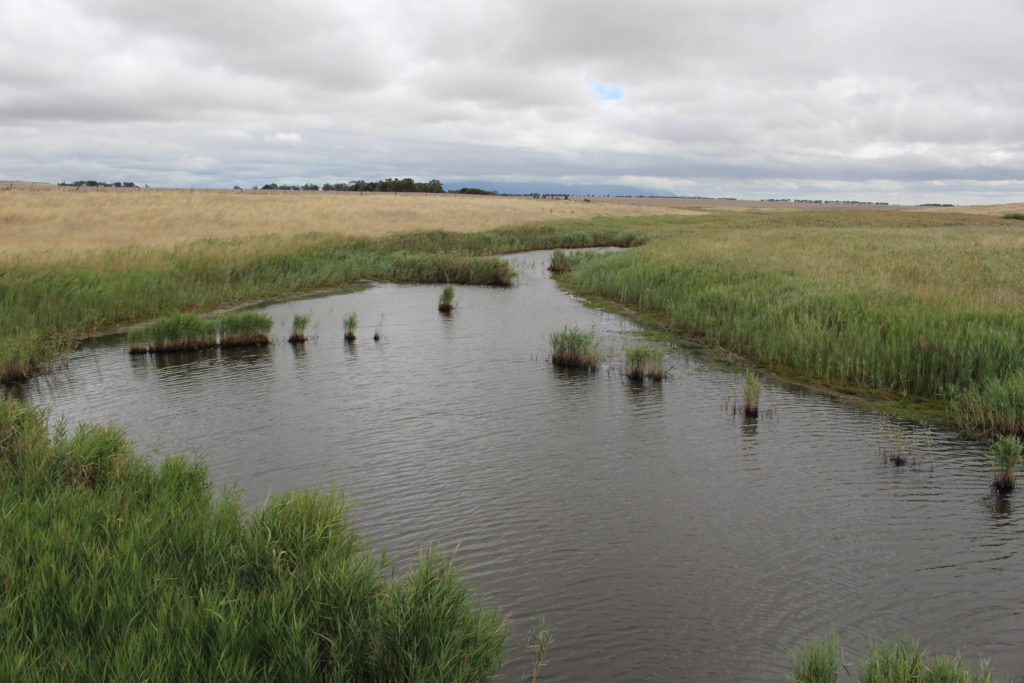
Edgarley Bridge (Hopkins River) 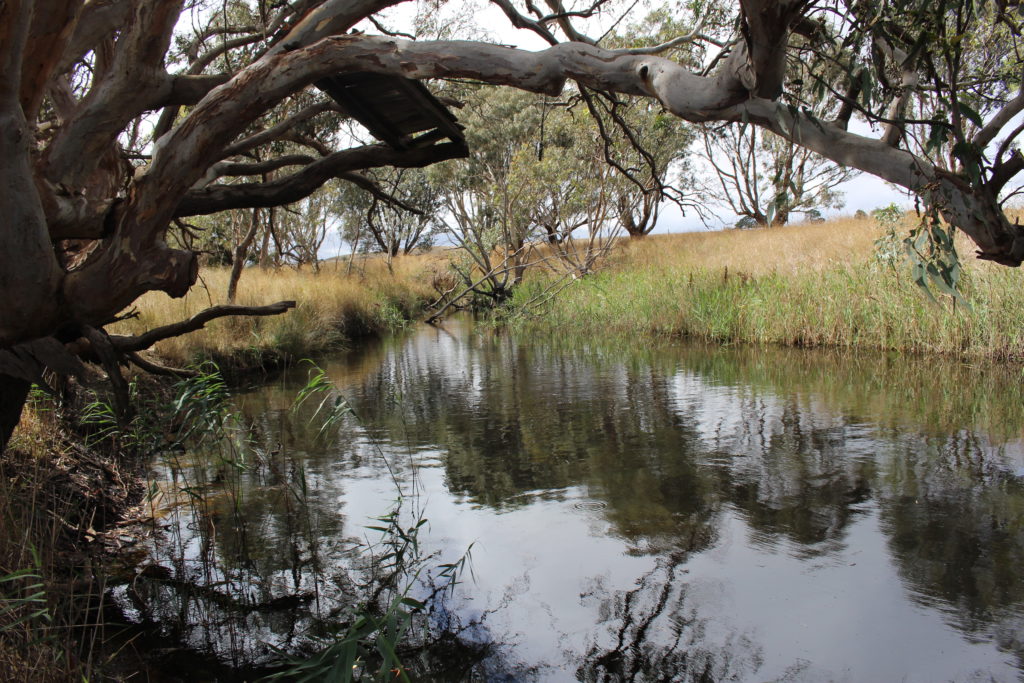
At the Wickliffe gauge 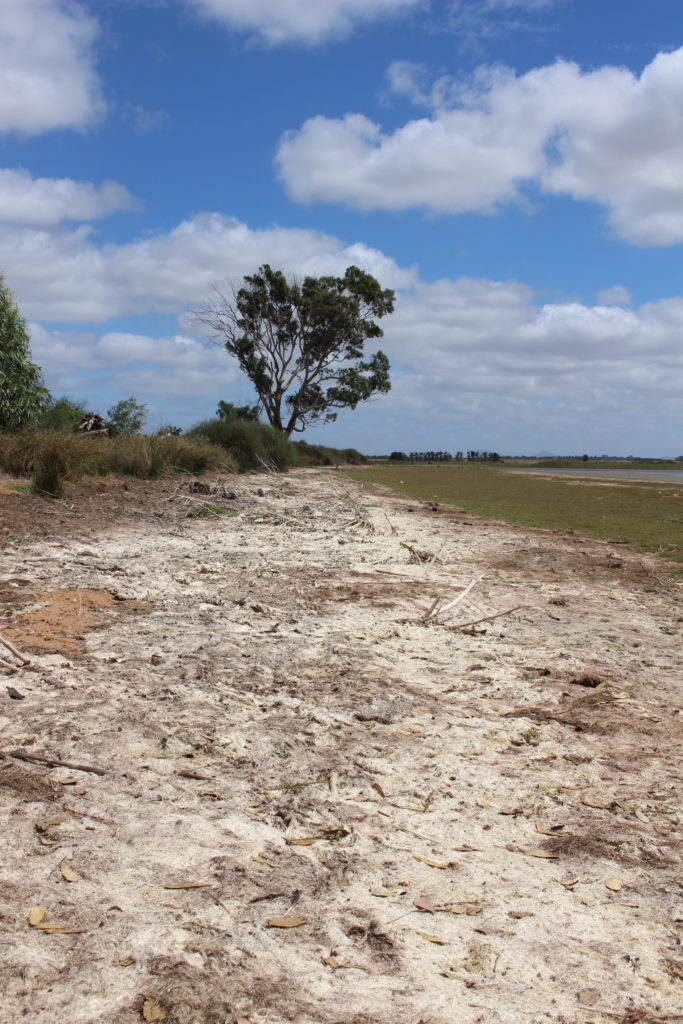
The banks of Lake Buninjon were covered in decaying vegetation, left behind as water levels dropped over the summer.
Water monitoring results
You can view the EC data in the table below, or click on the link to download a file. Numbers in bold exceed 6,000 EC μS/cm.
EC levels for livestock water supplies. Value given in brackets for each type of livestock is the EC level at which production decline begins: Beef cattle (6,200 EC μS/cm), lactating ewes and weaners (6,000 EC μS/cm), dry sheep (9,300 EC μS/cm)), horses (6,200 EC μS/cm), Pigs (3,100 EC μS/cm), poultry (3,100 EC μS/cm).
NOTE: I’m missing a little data because I’ve been stuck at home in COVID isolation. I’ll update the table once I’m allowed out again to finish the surveys!
